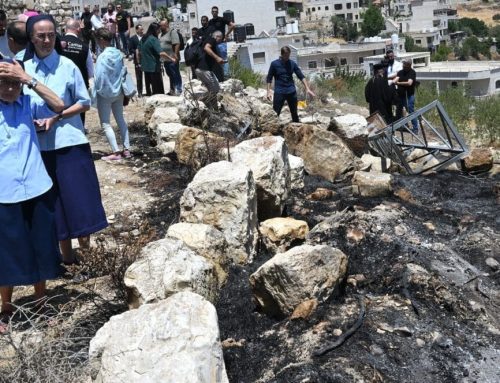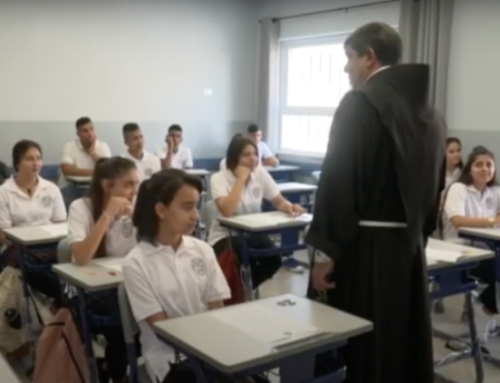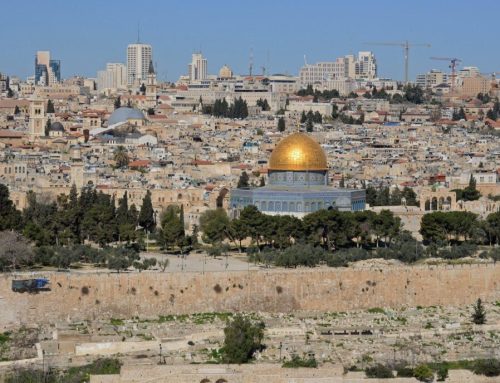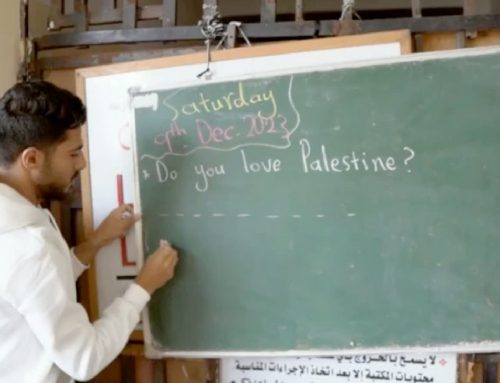Baghdad (AsiaNews) – Chaldean Patriarch Mar Raphael Louis Sako has launched a ‘Peace March’ on Palm Sunday “open to Christians and Muslims”, which “will set off from Erbil and end in Alqōsh” in the Nineveh Plain. People will be “on foot for one day” calling for an end to violence in Iraq and throughout the Middle East.
“I will lead the march,” the prelate said as he spoke to AsiaNews about his Church’s intentions for upcoming start of Lent in the interest of peace, rapprochement and dialogue. The walk will provide a “great occasion for unity,” and represents a common front against the violence and bloodshed that have scarred the country and the region.
The Chaldean Church has consecrated 2017 as the ‘Year of Peace’. For the Chaldean primate, the period leading up to Easter offers a great opportunity to breathe new life into a journey of prayer and reflection, one that is open to Iraq’s Muslim community. “Peace,” Mar Sako said, “must be achieved by us (religious leaders) as well as politicians, through courageous initiatives and responsible decisions.”
This is why, along with the peace march at the beginning of Holy Week, the Chaldean Patriarchate plans to organise “several meetings to celebrate the Via Crucis, using as stations, places in the Nineveh Plain, like Tall Usquf and Batnaya”, freed from Jihadi presence. This initiative is the result of co-operation with the diocese of Lyon, a show of the bond between Iraqi communities and Churches around the world during these years of suffering and persecution.
“During Lent we also want to collect aid and funds for Muslim refugees, asking our people to help people in need without distinction based on faith or ethnicity,” the prelate said.
In the coming weeks, His Beatitude will visit a Muslim refugee camp housing “people who fled Mosul” to escape the Islamic State (IS), in a sign of “Christian solidarity”. [. . .] “However small,” he noted, “these symbolic gestures are part of our tradition. In the East, we use symbols a lot.”
In recent weeks, the Chaldean Patriarch visited several towns and villages liberated from Jihadi occupation in the past months.
“I celebrated Mass with 50 families in Tall Usquf, others came from Alqōsh to take part in the event,” he said. The goal is “to bring home” everyone “before the end of the school year.”
It is a “miracle” that the church in Tall Usquf was not damaged and that the houses have been largely spared. “There was some looting and stealing, but not the devastation seen in Qaraqosh and Batnaya, where there is up to 80 per cent of damage.”
In these Chaldeans villages, “there is an atmosphere of enthusiasm and a desire to return – total joy, like on the eve of Easter of the resurrection, coming after darkness and violence. After the Mass, we raised a cross on a hill (pictured), a large cross, with candles, empty, as required by Chaldean tradition. It is a symbol of resurrection and locals came in droves to attend the service, pray, sing and clap.”
“This is the fourth time I visit liberated villages in the plain,” the Chaldean primate said. “I find a different atmosphere, a normal life, clean and safer streets although landmines remain a problem in many areas of Nineveh”.
In Mosul, where the army has now taken control of the airport after a four-hour battle with IS militias, “three families are back in the north-eastern sector of the city, but I could not visit them because the situation remains very dangerous.”
Lent is a time of peace and Christians are duty-bound to renew their commitment to peace and reconciliation. They should not come under the influence “of a tribal mind-set that feeds on revenge”. “There is no forgiveness when everyone tries to take the law into his own hands. It is up to us to open our eyes to the importance of peace, dialogue and coexistence.”
“Something is moving in Iraq. [. . .] Finally, people are choosing to build bridges rather than put up barriers. Prominent politicians and religious leaders have spoken out against a sectarian mind-set, and speak openly in favour of the separation of state and religion, a civic regime that guarantees citizenship to all.”
For this reason, Mar Sako appeals for conversion to regional and world leaders, to those who determine the fate of the region and the world with their decisions.
“I tell them to look inside their heart,” he said. “They have a huge responsibility, and should focus on human rights and everyone’s well-being, on being open and accountable, and on ensuring security in their territory but in a more humane manner and not at the expense of others.”
“Walls complicate things, and lead to even more violence,” the Chaldean primate explained. “For this reason, we must remove barriers from streets, walls from neighbourhoods, ghettos” from cities.
“We must talk, care for everyone’s welfare, and respect each other. This calls for total conversion of the heart. We must turn to the deepest values of religion. Hence, Lent becomes an important moment for everyone to convert, for those who believe and those who do not believe.” (DS)
Source: Asia News






